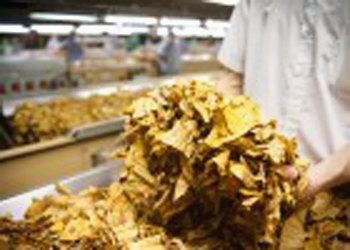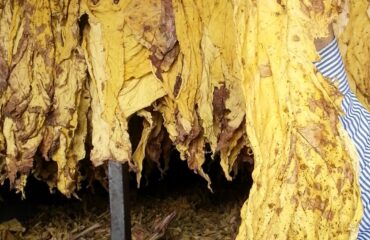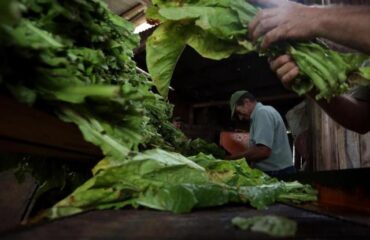Santa Cruz do Sul/RS – The South region of Brazil concentrates one of the largest industrial complexes in tobacco processing in world sheet, involving thousands of direct and indirect jobs. Every year, Brazil gets customers from about 100 countries interested in the tobacco produced in the region.
The product’s tradition is linked to the high quality and product integrity, as well as sustainable production, but has been struggling with rising labor costs, energy and raw materials, increasing the attractiveness of the product of competing countries, especially Africans. The situation of these and other factors led to a fall of 24% in exports of the product in 2014. For 2015 survey conducted by the PricewaterhouseCoopers (PwC) in late March showed the trend of exports (in dollars) similar to last year (+ 2% to -2%).
“The demand for tobacco will still exist, but we need to adjust production to the market at a cost that is possible to maintain the competitive Brazilian product in the international market. African countries are our major competitors in this sense, because they produce tobacco similar to ours, but with a lower production cost, “says the president of the Interstate Association of Tobacco Industry (SindiTabaco), Iro Schünke. For the executive, tobacco will remain an important part of the Brazilian trade balance, especially of the state (in 2014 represented 10.2% of exports from Rio Grande do Sul), as well as generating income and jobs for hundreds of municipalities.
GROW LEGAL
Next Monday, May 25th, the day that Brazil celebrates the industrial sector, SindiTabaco celebrates the 4th anniversary of the Growing Up Right Program. It is one of the largest programs to combat child labor in the world agriculture. The law prohibits children under 18 work in tobacco farming. In this sense, the agreement provides for the requirement of proof of school enrolment of the children of producers in the subscription period of the crop marketing contract between producer and company and often proof of the end of each school year.
Considered a cultural problem, eliminate the work of children and adolescents in family farming has been the challenge of the program. The main work is that of awareness through seminars, training, guidance booklets distribution, transmission of media campaigns on the issue and partnerships that promote education and qualify the young to succeed in the properties.
CYCLES OF AWARENESS
Awareness cycles on health and safety producer and child protection and adolescents are promoted annually in southern Brazil since 2009. Since then , there were six issues per year , totalling 38 events in different municipalities and a balance of 15 000 people made aware .
In 2015 there will be seven meetings in three cities in the state , two Santa Catarina and Parana two . In Rio Grande do Sul seminars take place in South Paradise Sinimbu and Barão do Triunfo , in July , with dates to be confirmed. In Santa Catarina and Paraná , events take place in the second half and cities and dates will be announced soon.
Source: SindiTabaco




